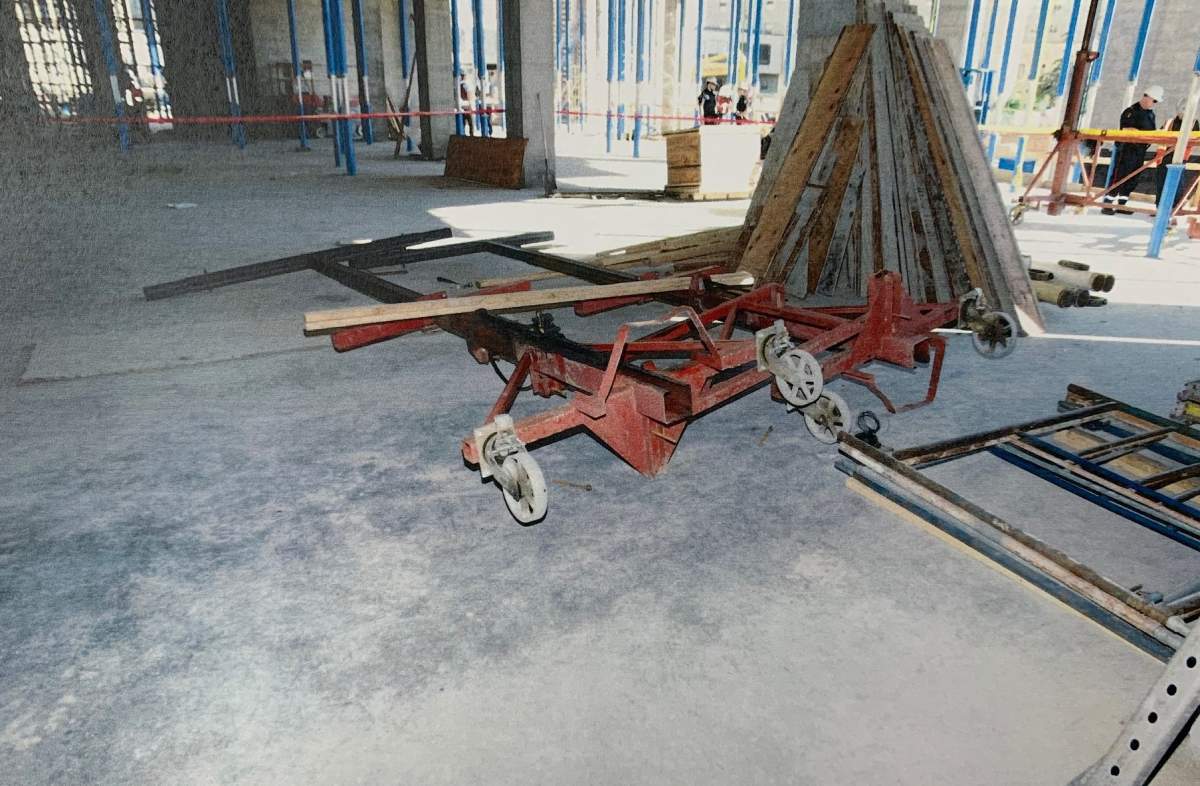The 21-year-old worker who died during the construction of the Jim Pattison Children’s Hospital in Saskatoon wasn’t in the wrong place at the wrong time, according to a provincial court judge.

Rather, Eric Ndayishimiye was placed there by an employer who didn’t take proper steps to ensure his safety, Judge Brent Klause said while reading his decision via teleconference Wednesday.
Banff Constructors Ltd. “was willing to spend money on an expert to shift the blame afterward but was not willing to spend the time and money to get the correct parts and safety manuals for the equipment in the first place,” Klause stated.
Ndayishimiye was working on the ground floor of the Saskatoon construction site on July 21, 2016. A 560-kilogram metal table cart fell on him.
The cart, a massive tabletop with wheels, was used for the drying and pouring of concrete slabs. It was designed to be moved by two people, but only one person was moving it on the day it collapsed.
Court heard the cart was missing two pins when it arrived at the worksite, and employees created pins using threaded rods. During the trial, one worker from the site testified he’d been told the two pins had been pulled out before the cart’s wheels moved, hit a rock and collapsed.

Get daily National news
Ndayishimiye was pronounced dead minutes later at Royal University Hospital. The victim’s cause of death was described as “multiple blunt force injuries to the chest, neck and head,” according to an agreed statement of facts.
Ndayishimiye had worked for Banff Constructors for almost six months. The company served as the subcontractor to Graham Construction, which was the primary contractor on the site.
Graham Construction was not charged in Ndayishimiye’s death.
Banff was found guilty of offences under the Occupational Health and Safety Act by failing to make arrangements for the use, handling and transport of trolleys in a manner that protects the health and safety of workers. The other conviction is for failing to provide any necessary information, instruction, training and supervision resulting in the death of a worker.
Alberta-based Pilosio Canada Inc. supplied the table cart. The judge stated Pilosio did what was “reasonably practicable” and “acted reasonably throughout in order to avoid this tragic outcome.”
The Crown sought for both companies to be found guilty. Pilosio argued its equipment was used improperly, had been modified without its consent and was the subject of lacking training. Banff argued there was an inherent design flaw, according to the judge’s decision.
Klause found Pilosio not guilty of failing to ensure equipment supplied to any owner, contractor, employer or worker was safe when used with instructions.
The trial for the two companies that began in August 2019 was the subject of numerous adjournments prior to Wednesday’s decision. Klause described multiple “time-consuming applications” as “unnecessary,” while acknowledging the COVID-19 pandemic also played a role in the delays.
Sentencing is scheduled for May 21.
—With files from Global’s Nicole Stillger











Comments